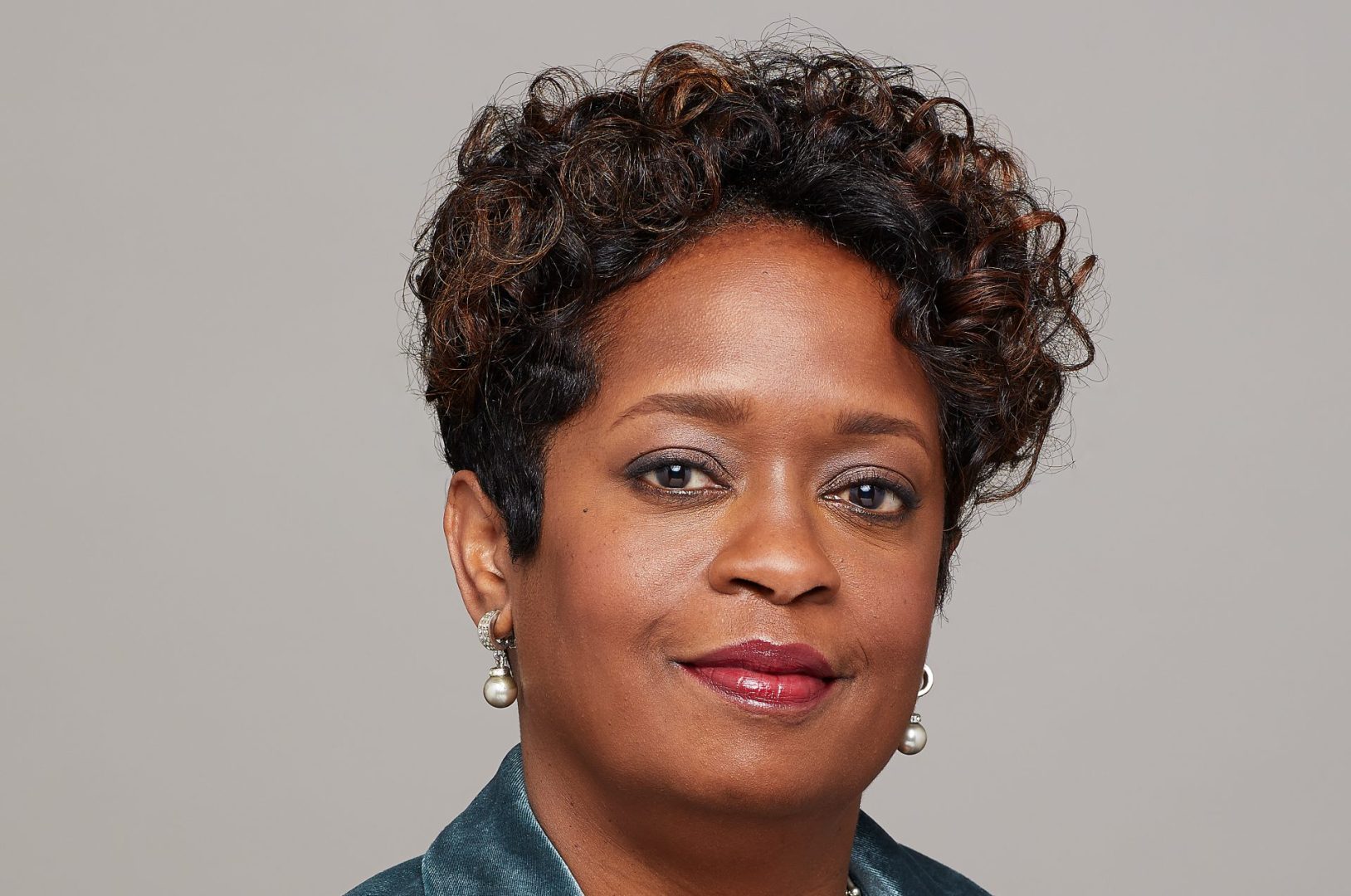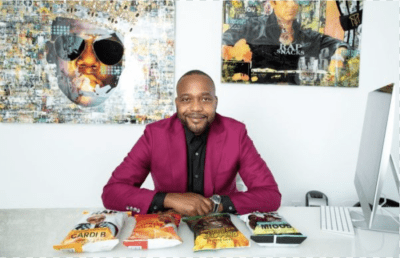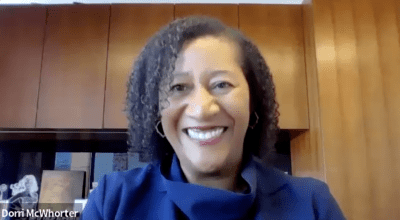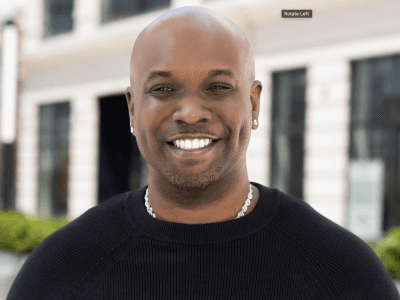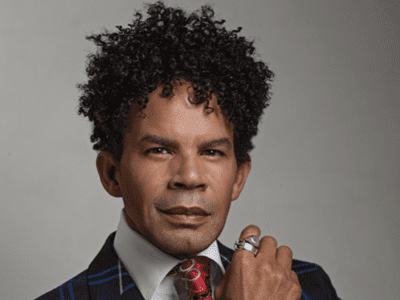Jeri Bingham, the founder of Black Introvert Week (Feb. 8-15), has been featured in the Chicago Tribune, Cosmo UK, Color Magazine, and on WGN Radio Chicago. She is a contributing writer for Myers-Briggs magazine, which is published on Medium.com, as well as for rolling out magazine. Rolling out articles include: “How do introverts protest?” “7 New Year’s Resolutions for Introverts,” and “What Introverts Want for Christmas.” Bingham also co-wrote an article for TLNT, a talent management and HR magazine, titled “On being an introverted woman in leadership.”
Bingham took time out of her schedule to sit down with rolling out publisher Munson Steed to talk about what it means to be an introvert in a world that favors extroverts.
Munson Steed: So, why don’t we just get right to it about being Black and an introvert: What should the public know? And how do you define a Black introvert, since most people think introverts are in a corner with their head down in their heads in their laps, afraid to have a conversation in front of their CEO?
Jeri Bingham: Thank you for that intro. So that is the stigma, that introverts are hermits, can’t speak to people, we don’t like people, we don’t leave the house, we can’t speak publicly, and all of that is just absolutely inaccurate. That description has been around for many years and it’s not just for Black introverts, but it’s all introverts … I’m working very hard to change that.
Introversion is about the way you receive and gain energy. And we talk about personality types. We usually talk about introverts and extroverts. So, introverts prefer more inward things, meaning you prefer to receive your energy and your good vibes internally from yourself. So, in solitude, you can sort of gain your energy best. Extroverts are more external. And so, they gain their energy through people, places, things, constant activities, events, and so that recharges them and gets them excited and helps them move on with their day. Introverts are just the opposite.
And when you add the layer of blackness, then you are looking at everything through that black lens and our own experiences, and the way we are perceived, and the way we show up in the workplace all play a role. And that’s why I created this week, and why we’re talking about bBack introverts. It’s because there is this misunderstanding, and that is when stereotypes often come into play.
So, for example, me. I’ve been told I have a “resting bitch face,” and I’ve been told that people thought I was mean, and they think all of these things that are inaccurate, and it’s because of my demeanor. So, I don’t live my life out loud. I’m not overly animated. And so, people can’t figure me out.
And when I say people, I’m talking about the majority, I’m talking about who you’re working with in corporate America and higher education wherever you are. And when they can’t figure you out, and you are telling them who they are, who you are. They are pulling on in, I think, stereotypes of what they think the Black woman is maybe from television, from media from their childhood. And so, then they start to paint this picture who they think you are, and it can be inaccurate.
The point is, we’re all different. And in this space, where everyone’s talking about diversity, equity, inclusion belonging, I want people to think differently about that before they misjudge us, and they start with these misperceptions and misunderstand who we are. Well, we are there, and we have something to bring. People have so much that they can gain from us, with all of our attributes and all that we can offer with our analytical skills and our listening. And so that’s why I keep talking about this because there needs to be more understanding.
MS: You know it started with Carter G. Woodson, who starts Black History week, which we got a month now. Obviously, you started Black Introvert Week, which I want to thank you for. Why is it important? How can we celebrate? And even for those parents who notice that they have children who are introverts: Why should they, too, begin to celebrate their ability to read and enjoy being in solitude more than being boisterous? And the norm so why is black introvert both needed and highlights the misconceptions that a society has placed on even blacks as being their property, and the animated actors that we need to be every time we show up, both at work and in our interaction with them outside of work.
JB: It’s about equity. I love that you brought parents into this conversation. I want parents to embrace and nurture what they see in their children, just like every child has a different personality. And once you figure out that personality, which usually comes out pretty soon, pretty early, you feed that, and you help them to develop.
Of course, we all need socialization. We have to go to school; we have to survive. We are citizens, and we have to go to work. But if you notice that your child prefers to maybe hang out in the kitchen with you on a Saturday versus going to hang out with the 20 kids on the block, then how about figuring out what it is that that kid likes? Is it that they want to be a cook? Do they want to be a chef? Is it something that you’re doing that is more appealing to them and more attractive to them? So, how can you build into that? Don’t make them feel as if something is wrong with them. Because many of us have grown up that way where we did not want to participate in a lot of the other activities that other kids did.
And so it was kind of like, well, what’s wrong with you? Why don’t you want to hang with me? Why don’t you want to go to this opportunity, go to this game, go to whatever, and I think that it has definitely developed and shaped who I am and turned me into taking this opportunity to educate, to tell parents now to look at their children differently, and to feed that. If your kid wants to read every day, what’s wrong with reading?
I think geniuses are the best readers. They probably were always having a book in their hand. And even, you know, there are lots of celebrities which I kind of like to always tell people, because I think that helps bring it to life. Some of our most well-known, highly regarded celebrities are introverts, and the first one I always like to hit people with is Oprah [Winfrey]. Oprah has come out and said that she is an introvert. And if you think about how she’s talked about her life, and what books and writing and poetry, and all of these things have meant to her. Eddie Murphy recently came out and said he’s an introvert. Stacey Abrams, Issa Rae, Shonda Rhymes. These are people at the top of their games who are making things happen, and they are introverts.
And so I want people to think about that, especially parents. You may have the next Oprah on your hands. And so what can you do to help encourage that? Black Introvert week is — and I have to thank you, Munson, when I said I wanted to create it, and I reached out to Munson and I said, “Can you help me bring this to life? You have all the credibility. How do I do this?” I had reached out to this organization to make it happen, and you said, “You don’t have to ask anybody to do anything, just do it.” And that’s exactly what I did. And you said, “People will get behind you. People will follow you, and they will support it,” and you are absolutely right. So, thank you for that entrepreneurial experience and that advice.
MS: But two things, I think, that are different for me and rolling out. And being a CEO, too, there is always a need in the Black community, given the oppression that our community has faced for institution builders. So it wasn’t that I just saw it as entrepreneurial. I thought it was healing. I thought it was a voice that was necessary … I didn’t see anything different than any other Black woman who has created an institution inside America. That decided, whether it was Fannie Lou Hamer, and decided we had a voice, and this was my space. And you don’t have agency over my culture. You don’t have agency over who I am. You can’t define who I am. So, it wasn’t the entrepreneurial thing as much as you creating a voice for future generations to know that there is somebody who erected an institution, a week, a moment in time. That said, “I can be my authentic Black self, and I can be my authentic, introverted Black self without any validation coming from outside my Black self in my Black community to understand my work.”
So, it wasn’t just, “Oh, so go start a business.” I really didn’t see it, I thought, as a healing proposition that would allow individuals to understand themselves through the lens of a collective effort. And I think that’s more of what I saw. Just so that you know how I perceived institution builders. And we need institution builders in our community so badly, to continue this work to forge through, to do it year after year.
JB: Well, thank you for that explanation, and it’s funny that you know the outpouring of support and the comments that I received from people. It is healing. I’m amazed at what people say to me and how they feel, heard, and seen, because they had not, prior to my conversations and panel discussions about Black Introvert Week, even things that have been floating out there for a couple of years now, there’s still people finding it, and sharing their joy, and someone else feeling their pain. And of course, others of us giving advice on how you move, how you handle how you are perceived in the workplace. How your president, or whoever you report to, perceives you and thinks something that’s just inaccurate. So, thank you again for giving me this opportunity.
And also I want to share that I have a panel coming up on February 2nd. I focused on being introverted and black, and all these things introverted black woman. And so, this year I’m focusing on the introverted black male. Males have a different triple-barrel experience, just like women. And so, they are dealing with first, being a black man, because that is what shows up first, and all the stereotypes and everything that comes with that. Then, second, being introverted, they’ve got the black, the male, and the introversion, and all of that, you know, leads to how they are perceived when they walk into a room, and people may be unsure, they may be afraid, they may be intimidated, they may be threatened, and these are their own insecurities and their own judgments, and that’s not fair to our Black men.
So, I have a panel of three men. One is Jay Coleman. He has a podcast and a brand called “Sincerely an Introvert.” Another is Richard Etienne, our friend from the UK. And he has a master class on building a brand for introverts, and he’s the founder Black Introvert Week UK. And then also we have Terence Lee, who is the introvert leader, and he has a book and also a podcast and I think he’s working on additional books. So, I’m really excited to have these three gentlemen in a virtual panel discussion that we’re having on February 10th, at 1 p.m. Central, 2 p.m. Eastern, for information about that, and to register, just go to my website, HushLoudly.com/blackintrovertweek.
MS: So, if you were giving a young group of young professionals who wanted and knew that they were introverted, but had not been there, how would you suggest they begin to inform their workplace and their friends of what being an introvert is, and the fact that you know this is something that they want them to professionally understand about who they are.
JB: I think that the word “introvert” is still a dirty word, and I’m working on changing that. So, I would not go into the workplace and say, “Hey, I’m an introvert,” especially as a new employee. If you’ve been there for a while, established yourself established relationships like me. I can say, “Hey, I’m an introvert. I don’t do that,” or you know we laugh and joke about it and have fun. But if you’re brand new, I would absolutely not recommend it.
But I would recommend that you talk about the behavior. So, what I’ve done and what anyone can do [should occur] when you are in your first meeting with your manager. Then you say, as you try to get to know them, you allow them to get to know you, and so you may say, “Hey, I excel in the one-on-one meetings. I prefer this. I prefer to write my thoughts out. It takes me a minute to process what’s going to give the best version of me. I like to base everything on data. And so, I may need a little extra time. It would help me if you gave me an agenda in advance and told me what you wanted the outcome to be because I’m going to do my research and everything in advance. And then I’ll be prepared to share that with you in the meeting or in the conference room on Tuesday.”
So, all of those things are typical characteristics of introverts without me saying the word “introvert.” You may say something like, “Hey, I know there are all kinds of their activities every week, every night, and I am not one who may partake in those. And so, I will come to whatever I can, but you may not see me at every event every week, so there are ways around it, you know, things like that even in your office, how you build your space. Hopefully, you have an office, and you can share with your manager that [you] need [your] little time to recharge. I may step outside for a few minutes to do this and do that. All of that helps me be the best person best employee for the company. So that is the way I would do it. I would not lead with “I’m an introvert,” because it may not be taken well, and I hate that we’re in that space. But we are because we are in a world that rewards and celebrates the most extroverted, outgoing behavior, and for those of us who don’t have that, we don’t want that to be held against us.
MS: Well, I thank you for that ’cause I wanted people to understand that there is a methodology that you bring to the workplace, to begin to at least set some boundaries that, I think, allow people to understand your highest, best self and productive and efficient self can be in being an introvert. And I think there are many extroverted people that can, as I have learned in dealing with introverts, set agendas to help create the best experience for the other person on the line when they can anticipate both the best information to bring to a meeting to also bring an expectation of what will be at the meeting. I think extroverts just want to be spontaneous, but that doesn’t bring any data, and that doesn’t bring any real end to the process, which I think in a limited time and a very productive time when AI can do many things. You want to be efficient and effective in bringing that delivery. And I think that introverts really teach extroverts how to bring what you would like to think should just be running gunshot into a much more organized process inside an organization, to be able to achieve goals and have metrics much more visible than most extroverts would choose. Given the outcome of meetings that don’t have agendas that don’t have clear sets of goals, and don’t allow people to actually pause, before they have to deliver information, or even insights on their position for it.
Jeri Bingham: And let me add to what we were talking about these agendas. They’re also great for extroverts now, extroverts usually think out loud, and that is why you hear them, you know, at the forefront in most meetings because they are thinking while they are speaking, and introverts are the opposite. We are usually thinking first, processing, and then we need to get it out, usually tied to some data or some research that we’ve done. Neither way is better. We need each other. And so providing an agenda is just very helpful. I feel like it levels the playing field.
So, the extroverts know what we want to talk about. And the introverts know we want to talk about, and we can each prepare in the way that we want, and then come through. And I mean not just an agenda with a little information but give some detail. What are you looking for? Don’t just talk like the headline. Tell me what the outcome. What are you looking for? At the end of this meeting. I want to have 10 ideas on programming for next year. That is what an introvert means. And so that is something that will level the playing field. And again, that’s about equity.
MS: No, I thank you for that. And my insight in just dealing with introverts is they’re very effective, high-level-thinking leaders. They literally can keep the goal in the forefront for an organization, and you might want to begin to look at your organization and see who you’ve omitted from a leadership capacity based on their silence and their lack of extrovertedness. So, I wanna thank you, Jeri, for coming on. I want to thank you for continuing to support Black introverts around the world, for we need to know that we are a mighty and strong community with an institutional builder like Jeri Bingham, who is making a difference.

